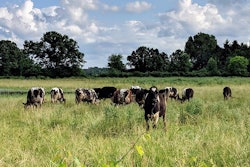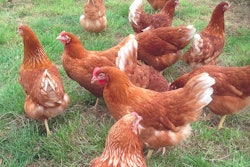
Biomin’s new managing director discusses his new role and predictions for the animal feed industry
Franz Waxenecker was named managing director for Biomin in November. He joined the company in 2001 and most recently served as director of development and innovation.
Feed Strategy asked Waxenecker about his new role and the future of Biomin and the industry as a whole.
Feed Strategy: What about your role has changed now that you are managing director?
Waxenecker: Aside from a wider scope and set of responsibilities, it is surprising how little has changed since my appointment as managing director. There is a lot of consistency in terms of a sense of purpose and working with dedicated and professional colleagues. For my first 20 years at Biomin, most recently leading the development department, I have been involved in putting innovation to work in order to help our customers address the challenges they face. This remains our continued focus.
My personal mission is to carry the Biomin mission further. More sustainable food production, food security and antibiotic-free feeding systems form part of the company’s DNA. This has motivated me and continues to drive me professionally. I am fully convinced that what we are doing is beneficial for customers, consumers and the planet.
My approach to leadership is to emphasize customer care, nurturing talent, offering support and being obsessed with maintaining highest standards of quality. These principles carry through to every level of the organization.
Feed Strategy: What do you hope to achieve in your new position? What unique qualities do you bring to the leadership of the company?
Waxenecker: I hope to make our customers more successful in their operations using our biotech-based solutions, and to further advance the science of animal nutrition and accompany clients as the industry continues to evolve.
We seek to build and maintain long-term partnerships with clients because, ultimately, their success determines our success. Of course, there are specific initiatives planned that will help us to achieve this in the future. These relate to business goals, such as being a market leader, broadening the portfolio of customer solutions and making further advances in the digital space.
My own qualities aside, I would highlight the importance of leaders that we have in place throughout Biomin both at headquarters and out in the markets that work together as a team to accompany clients in overcoming challenges and achieving better outcomes. This factor sets Biomin apart and contributes to our success and that of our clients.
Feed Strategy: What do you see as the pressing issues in your industry and how does Biomin hope to address them?
Waxenecker: As Erich Erber pointed out at the 2018 World Nutrition Forum, it is becoming increasingly important for the industry to invent, source and produce locally. Regulation, registration requirements and trade friction reinforce this trend. For our part, we already work from a broad geographic base, having customers and offices throughout the globe. We produce in over a dozen production plants that are situated to ensure prompt delivery to clients, and most recently we’ve added R&D staff to regional offices who further extend and localize the activity of the Biomin Research Center.
Controlling undesirable substances will continue to play a major role in animal protein production, for example mycotoxins or the risk of antimicrobial resistance. These topics have been a recurring theme in our considerable R&D budget over the years.
Feed Strategy: How do you see the future of animal feed additives?
Waxenecker: In the past decades, change has been a permanent feature of agriculture, and feed additives will likely play a more important role in supporting high-performing animals in the future.
Looking ahead, we expect feed additives to be a more consistent part of animal nutrition as these technologies become more fit-for-purpose, cost effective and have documented modes of action.
To give one example, our R&D pipeline includes additional MYCOzymes (mycotoxin-degrading enzymes such as FUMzyme) that target and irreversibly detoxify specific mycotoxins. Digitalization and a portfolio of such enzymes will allow for precise delivery of custom mycotoxin deactivators in feed.
Gut performance management will also continue to gain ground as the industry continues to address sustainability and decrease its use of antimicrobials.
Feed Strategy: Do you see any trends in the animal feed industry that will stand out in 2020 and why?
Waxenecker: I think that most of the major topics have been with us for a number of years now and will stay on the agenda in the near future. Trends follow the zeitgeist, so to speak, and sustainability is a major theme on the agenda for consumers and businesses. Our industry has made genuinely remarkable progress when it comes to improving efficiency, which underpins both profitability and sustainability.
It is also likely that the industry begins to move away from least-cost principles in animal nutrition, as animal protein producers put even greater emphasis on a number of factors e.g. pathogen reduction, gut performance and final product quality that keep their businesses competitive and profitable.













